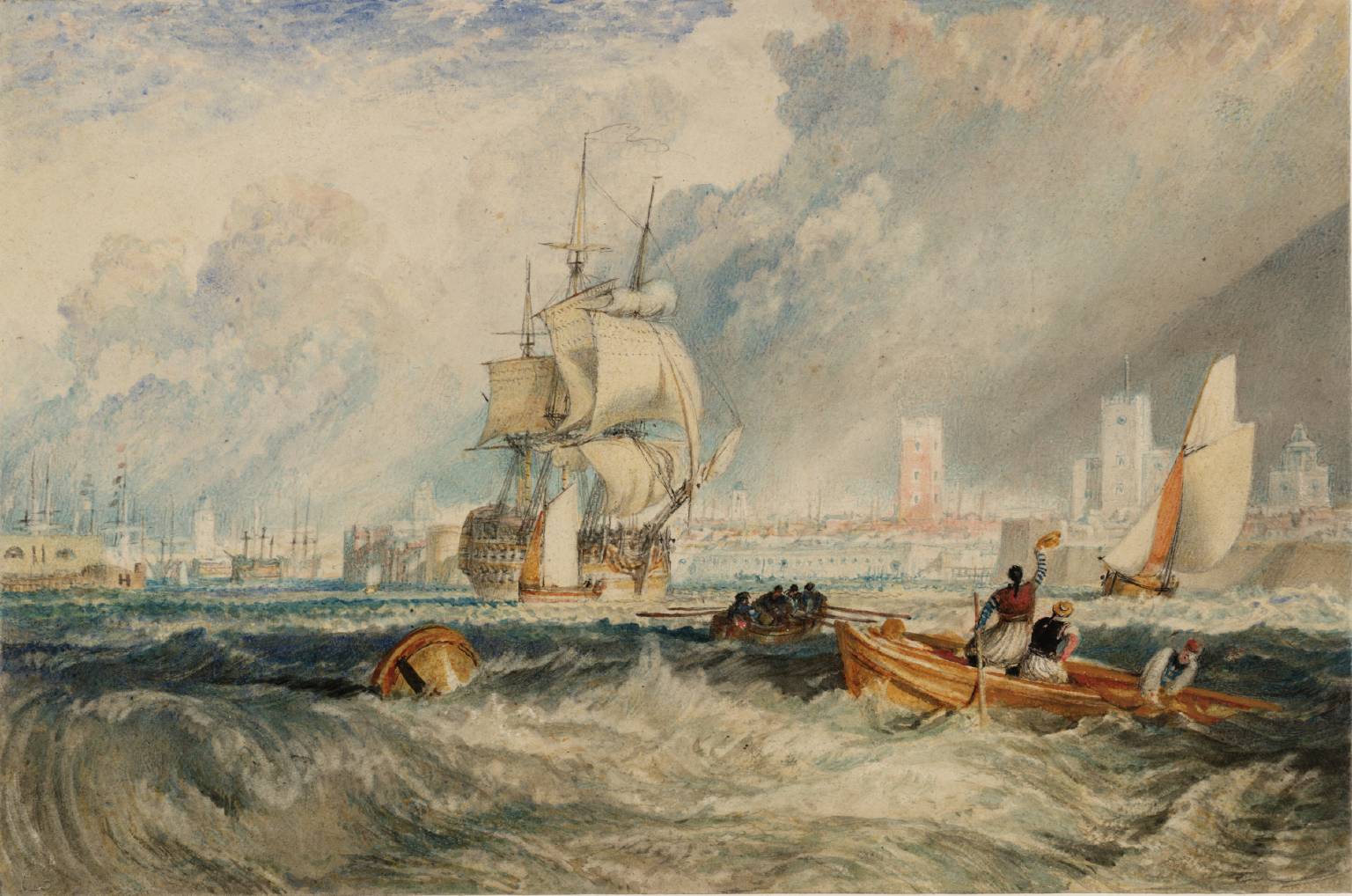If Maritime Historians Are in Danger of “being left with their journals and not much else” (Lewis Fischer), What Can Those Journals Tell Us about Ourselves? A Ten-Year Study
DOI:
https://doi.org/10.25071/2561-5467.919Keywords:
maritime history, historiography, maritime history journals, state of the fieldAbstract
This article examines the width and variety of contemporary maritime history - a concern of Skip Fischer in his later years, and which gives the article its title. Maritime history can provide a major template for understanding change, but it can only achieve this by actively investigating the multiple ways in which human beings relate to the sea. The author listed 30 categories that would reflect this possible diversity and then coded all the articles in the four major English maritime history journals for the period 2009-2018 (N=774 papers by 897 authors). The results were clearcut. Papers on nations’ navies accounted for 43.3 percent and papers on mercantile matters 44.8 percent, highlighting a lack of diversity in research topics and leading the author to fear for the future of maritime history.
Cet article traite de l’ampleur et de la diversité de l’histoire maritime contemporaine, une des préoccupations de Skip Fischer au cours des dernières années de sa vie. L’histoire maritime peut servir de modèle permettant de comprendre le changement, mais elle ne peut y parvenir qu’en analysant avec diligence les maintes façons dont les êtres humains exploitent la mer. L’auteur a répertorié 30 catégories qui représentent cette diversité d’usage, puis il a codé tous les articles dans les quatre grandes revues d’histoire maritime de langue anglaise pour la période 2009-2018 (N = 774 articles par 897 auteurs). Les résultats sont clairs. Les articles sur les marines des nations représentent 43,3 pour cent, tandis que les articles sur les questions mercantiles représentent 44,8 pour cent du total. Ces résultats soulignent un manque de diversité au niveau des sujets de recherche, entraînant chez l’auteur des craintes à l’égard de l’avenir de l’histoire maritime.
References
Behrman, Cynthia. Victorian Myths of the Sea. Ohio: Ohio University Press, 1977.
Bellamy, Martin. “Editorial.” The Mariner's Mirror 10, no. 2 (2017): 131. DOI: https://doi.org/10.1080/00253359.2017.1304695
Broeze, Frank. “From the Periphery to the Mainstream: The Challenge of Australia’s Maritime History.” The Great Circle 11, no. 1 (1989): 1-13.
Broeze, Frank. Island Nation: A History of Australia. Melbourne: Allen & Unwin, 1998.
Burrow, Colin. “Light through the Fog.” London Review of Books, 26 April 2018.
Chakrabortty, Aditya and Sally Weale. “Universities accused of 'importing Sports Direct model' for lecturers' pay.” The Guardian, 16 November 2016.
Churchwell, Sarah. “Sign of the Times.” Guardian Review, 17 February 2018.
Davies, Peter N. “The Liverpool School of Maritime History.” International Journal of Maritime History 17, no. 2 (2005): 249-260. https://doi.org/10.1177/084387140501700214 DOI: https://doi.org/10.1177/084387140501700214
Fischer, Lewis R. “Are We in Danger of Being Left with Our Journals and Not Much Else: The Future of Maritime History.” The Mariner’s Mirror 97, no. 1 (February 2011): 366-381. https://doi.org/10.1080/00253359.2011.10709050. DOI: https://doi.org/10.1080/00253359.2011.10709050
Fischer, Lewis R. “The Future Course of Maritime History.” International Journal of Maritime History 29, no. 2 (2017): 355-364. https://doi.org/10.1177/0843871417695493. DOI: https://doi.org/10.1177/0843871417695493
Gayford, Eily (Kit). The Amateur Boatwomen. Newton Abbot: David and Charles, 1973.
Gibson, Marion. “Vikings and Victories; Sea-stories from ‘The seafarer’ to Skyfall and the future of British Maritime Culture,” Journal for Maritime Research 17, no. 1 (2015): 1-15. https://doi.org/10.1080/21533369.2015.1024512. DOI: https://doi.org/10.1080/21533369.2015.1024512
Gissing, George. New Grub Street. London: Smith, Elder and Company, 1891.
Harding, Richard. “Chairman’s Column.” The Mariner’s Mirror 96, no. 1 (2010): 7-8. DOI: https://doi.org/10.1080/00253359.2010.10657124
Heidbrink, Ingo. “Closing the ‘Blue Hole’: Maritime History as a core element of historical research.” International Journal of Maritime History 29, no. 2 (2017): 325-332. https://doi.org/10.1177/0843871417695474. DOI: https://doi.org/10.1177/0843871417695474
Liebich, Susann and Laurence Publicover. “Maritime Literary Culture.” Topmasts (Special Issue 2017): 21-24.
Locke, Cybèle. “Communist made at sea and in port: Maritime class relations during the Second World War.,” International Journal of Maritime History 28, no. 3 (2016): 532-549, https://doi.org/10.1177/0843871416647244. DOI: https://doi.org/10.1177/0843871416647244
Matthews, Mark D. and James G. Davies, “Maritime Historical Research in Wales: A peripheral view,” Topmasts (Special Issue 2017): 47-50.
Murphy, Hugh. “Editorial.” The Mariner’s Mirror 95, no. 4 (2009): 388. DOI: https://doi.org/10.1080/00253359.2009.10657111
Ojala, Jari and Stig Tenold. “Maritime History: A Health Check.” International Journal of Maritime History 29, no. 2 (2017): 344-354. https://doi.org/10.1177/0843871417695490. DOI: https://doi.org/10.1177/0843871417695490
Paine, Lincoln. “Beyond the Dead White Whales: Literature of the Sea and Maritime History.” International Journal of Maritime History 22, no. 1 (June 2010): 225, https://doi.org/10.1177/084387141002200112 DOI: https://doi.org/10.1177/084387141002200112
Raynes, Rozelle. Maid Matelot (Lymington: Nautical, 1971); Nevil Shute, Requiem for a Wren (London: Heinemann, 1955).
Redding, Benjamin W.D. “Making Early Modern Naval History Relevant: Discussing warship design in the undergraduate classroom.” Topmasts (Special Issue 2017): 17-20.
Rose, Susan. “Is the Study of Maritime History before 1550 Unjustifiably Neglected?” Topmasts (Special Issue 2017).
Shute, Nevil. Requiem for a Wren. London: Heinemann, 1955.
Smith, Emma. Maidens’ Trip. London: Bloomsbury, 2011.
Standing, Guy. The Precariat: The New Dangerous Class. London: Bloomsbury, 2011. DOI: https://doi.org/10.5040/9781849664554
Stanley, Jo. “(Actively) ‘Moving Missing ‘Minorities’ from the Margins to the Main in Maritime Museums.” Topmasts (Special Issue 2017): 37-41.
Stanley, Jo. Women and the Royal Navy. London: I.B. Tauris, 2017.
Tosh, John. The Pursuit of History, 5th ed. Harlow: Pearson Education, 2010.
Woolfitt, Susan. Idle Women. London: Benn, 1947.

